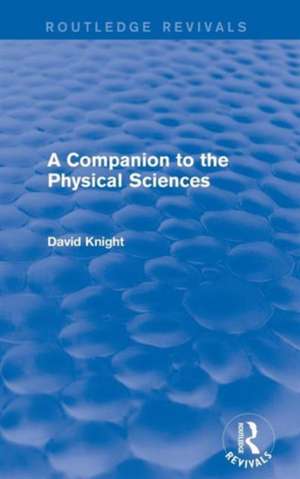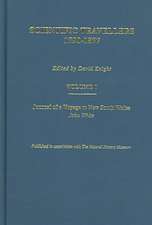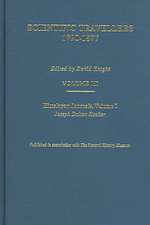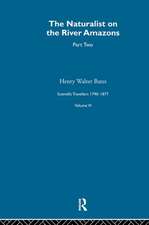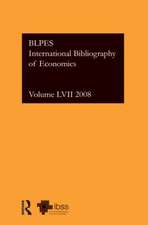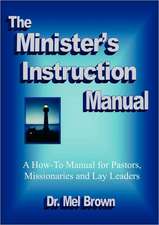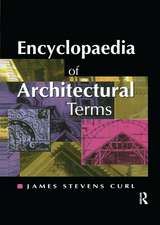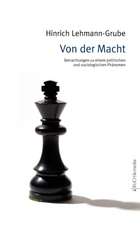A Companion to the Physical Sciences: Routledge Revivals
Autor David Knighten Limba Engleză Hardback – 5 ian 2016
This book will be a useful resource to students interested in the history of science.
Din seria Routledge Revivals
- 9%
 Preț: 767.40 lei
Preț: 767.40 lei - 9%
 Preț: 1004.17 lei
Preț: 1004.17 lei - 9%
 Preț: 934.94 lei
Preț: 934.94 lei -
 Preț: 230.80 lei
Preț: 230.80 lei -
 Preț: 294.72 lei
Preț: 294.72 lei -
 Preț: 258.66 lei
Preț: 258.66 lei - 9%
 Preț: 903.41 lei
Preț: 903.41 lei - 18%
 Preț: 695.85 lei
Preț: 695.85 lei -
 Preț: 296.10 lei
Preț: 296.10 lei -
 Preț: 342.36 lei
Preț: 342.36 lei - 9%
 Preț: 606.35 lei
Preț: 606.35 lei -
 Preț: 309.94 lei
Preț: 309.94 lei - 9%
 Preț: 729.99 lei
Preț: 729.99 lei -
 Preț: 256.94 lei
Preț: 256.94 lei -
 Preț: 230.80 lei
Preț: 230.80 lei -
 Preț: 259.47 lei
Preț: 259.47 lei - 9%
 Preț: 903.80 lei
Preț: 903.80 lei -
 Preț: 153.81 lei
Preț: 153.81 lei -
 Preț: 258.66 lei
Preț: 258.66 lei -
 Preț: 294.91 lei
Preț: 294.91 lei -
 Preț: 200.66 lei
Preț: 200.66 lei -
 Preț: 200.18 lei
Preț: 200.18 lei -
 Preț: 308.78 lei
Preț: 308.78 lei -
 Preț: 295.04 lei
Preț: 295.04 lei -
 Preț: 382.23 lei
Preț: 382.23 lei -
 Preț: 258.66 lei
Preț: 258.66 lei -
 Preț: 343.21 lei
Preț: 343.21 lei - 9%
 Preț: 640.90 lei
Preț: 640.90 lei - 9%
 Preț: 605.71 lei
Preț: 605.71 lei -
 Preț: 228.88 lei
Preț: 228.88 lei -
 Preț: 257.67 lei
Preț: 257.67 lei -
 Preț: 245.10 lei
Preț: 245.10 lei -
 Preț: 258.52 lei
Preț: 258.52 lei - 5%
 Preț: 231.22 lei
Preț: 231.22 lei -
 Preț: 368.93 lei
Preț: 368.93 lei -
 Preț: 246.37 lei
Preț: 246.37 lei - 9%
 Preț: 764.34 lei
Preț: 764.34 lei -
 Preț: 258.66 lei
Preț: 258.66 lei -
 Preț: 326.26 lei
Preț: 326.26 lei -
 Preț: 286.98 lei
Preț: 286.98 lei - 8%
 Preț: 418.23 lei
Preț: 418.23 lei -
 Preț: 260.85 lei
Preț: 260.85 lei -
 Preț: 267.15 lei
Preț: 267.15 lei -
 Preț: 295.62 lei
Preț: 295.62 lei -
 Preț: 262.64 lei
Preț: 262.64 lei - 9%
 Preț: 638.61 lei
Preț: 638.61 lei -
 Preț: 341.55 lei
Preț: 341.55 lei -
 Preț: 381.17 lei
Preț: 381.17 lei -
 Preț: 294.53 lei
Preț: 294.53 lei -
 Preț: 294.72 lei
Preț: 294.72 lei
Preț: 781.64 lei
Preț vechi: 953.22 lei
-18% Nou
Puncte Express: 1172
Preț estimativ în valută:
149.60€ • 155.60$ • 125.37£
149.60€ • 155.60$ • 125.37£
Carte tipărită la comandă
Livrare economică 13-27 martie
Preluare comenzi: 021 569.72.76
Specificații
ISBN-13: 9781138643147
ISBN-10: 1138643149
Pagini: 184
Dimensiuni: 156 x 234 x 13 mm
Greutate: 0.43 kg
Ediția:1
Editura: Taylor & Francis
Colecția Routledge
Seria Routledge Revivals
Locul publicării:Oxford, United Kingdom
ISBN-10: 1138643149
Pagini: 184
Dimensiuni: 156 x 234 x 13 mm
Greutate: 0.43 kg
Ediția:1
Editura: Taylor & Francis
Colecția Routledge
Seria Routledge Revivals
Locul publicării:Oxford, United Kingdom
Public țintă
Postgraduate and ProfessionalCuprins
Introduction, A-Z Listings, Index
Notă biografică
David Knight(University of Guelph, Canada)
Descriere
First published in 1989, this dictionary of the whole field of the physical sciences is an invaluable guide through the changing terminology and practices of scientific research. Arranged alphabetically, it traces how the meaning of scientific terms have changed over time. It covers a wide range of topics including voyages, observations, magnetism and pendulums, and central subjects such as atom, valency and energy. There are also entries on more abstract terms such as hypothesis, theory, induction, deduction, falsification and paradigm, emphasizing that while science is more than ‘organized common sense’ it is not completely different from other activities. Science’s lack of innocence is also recognized in headings like pollution and weapons.
This book will be a useful resource to students interested in the history of science.
This book will be a useful resource to students interested in the history of science.
